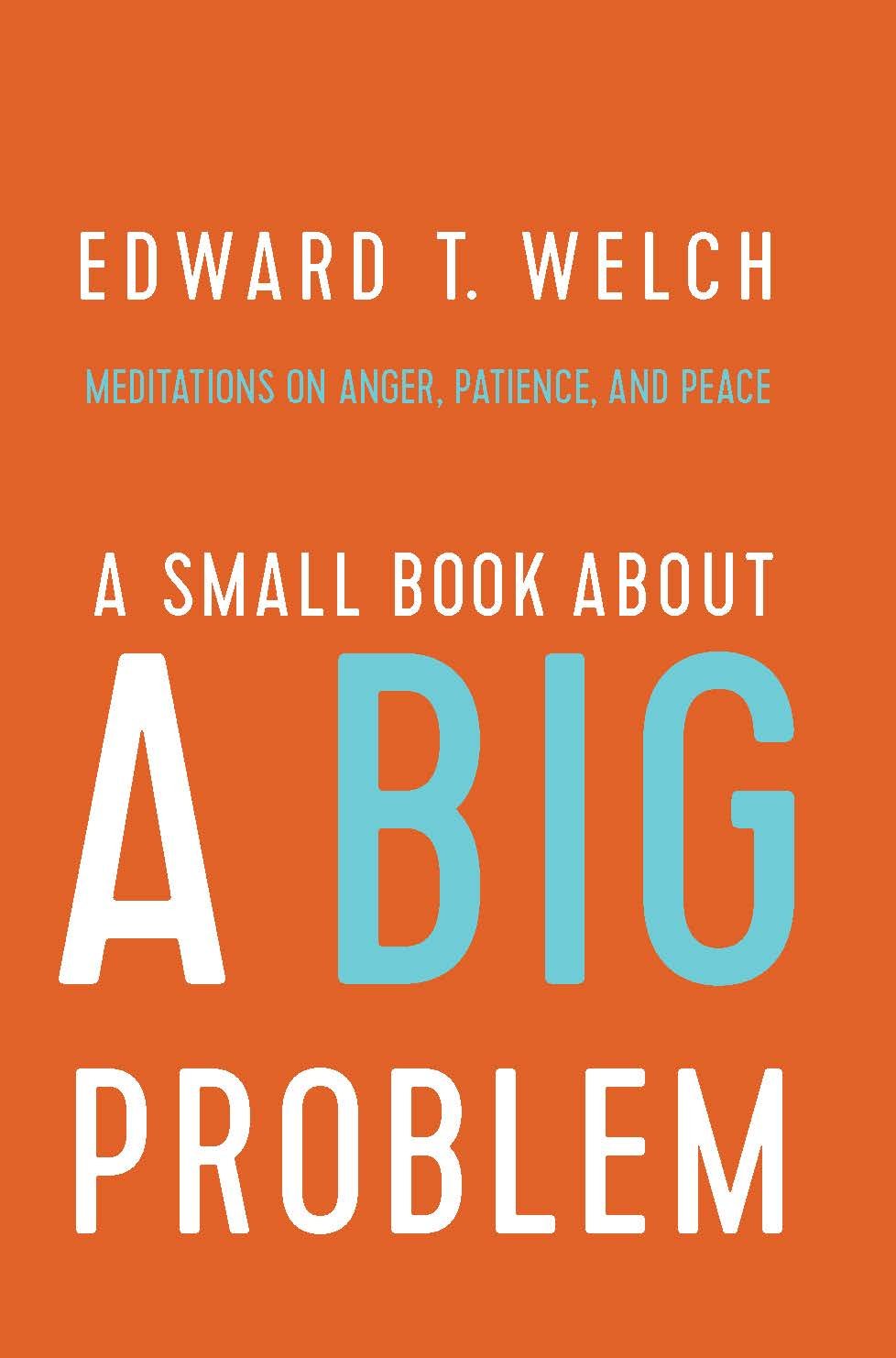A Book Review from Books At a Glance
by Eric J. Tully
In keeping with the title, this book is literally a small book, measuring a little more than four by six inches. But it is filled with Scripture and wisdom beyond its size and will be helpful to anyone who wants to take some dedicated time to think seriously about anger. The author is Edward Welch, a licensed psychologist and faculty member at the Christian Counseling & Educational Foundation (CCEF) and a counselor for over 30 years. Welch has written many books including When People are Big and God is Small (1997), Depression (2011), Shame Interrupted (2012), and Side by Side (2015).
A Small Book consists of a title page and fifty meditations for fifty days.
Day 1 is an introduction. Welch states that anger is common and ordinary, but that does not mean it is innocent. It destroys relationships and even our health. This book is intended give the reader time to think through the many aspects of anger. We have so much access to information, yet not much time to reflect. Welch has created fifty short meditations because he believes it will be more memorable and effective than simply skimming a book and then putting it aside in favor of something else. He writes, “A slow walk seems just the right pace for this pursuit of wisdom” [4]. He suggests the following strategy:
- “Read only one a day.
- Talk back. Engage with the questions that occasionally appear in the book.
- Talk with someone else. The topic is relevant to everyone, and a friend or family member would benefit from hearing your thoughts, and you theirs” [4].
Day 2 suggests, and asks the reader to reflect upon, reasons that we need to tame our anger.
Day 3 is about defining anger. Welch states that anger indicts others. The issue is not just that someone has been wrong, but that he or she has done wrong to me. When things get personal, judges in a courtroom recuse themselves, but we often do not recuse ourselves even though we know we are biased. “This judge, instead, adopts the multiple roles of judge, plaintiff, and prosecuting attorney” [10]. Welch states that relationships do not do well in a courtroom: you may have been right, but you did not love. By contrast, Jesus says that we should either leave the courtroom or enter it as the accused (Matt 7:1-2) [10].
Day 4 quotes Matthew 7:1-2 again and addresses the criteria with which we judge others. Welch then quotes a longer passage from Matthew 7:3-5.
Day 5 quotes Matthew 5:21-22 – “But I say to you that anyone who is angry with his brother will be liable to judgment.” Welch asks, “Why is Jesus so hard-hitting on this? Anger destroys Jesus wants life for us all. And we can’t turn toward life until we see the murderer who lurks within. Try this identity today: murderer” [19].
This short sample of Days 2-5 should provide a taste of what Welch is doing in the book. The remaining days (6-50) deal with many other topics including reasons for anger, types of anger, blind spots, anger as sin, God’s anger, the relationship between anger and humility or fear, and so on. There is no conclusion, although Day 50 does point the way forward to a life and future lived in the community of God.
Welch’s writing is warm and conversational. He asks interesting and direct questions and provides witty and engaging illustrations. The book is very practical, suggesting specific plans of attack and prayers and giving “pep talks” along the way. Almost all of the days have at least one verse of Scripture as the foundation for the discussion (mostly from the New Testament).
This challenging and engaging book is highly recommended for those struggling with anger or whoever ministers to those who struggle with anger. A pastor, teacher, or counselor might consider keeping a few copies on hand to give away.
Eric J. Tully is Associate Professor of Old Testament and Semitic Languages at Trinity Evangelical Divinity School.
